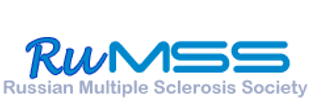In Russia very much attention is given to treatment of patients with multiple sclerosis (MS).
Patients with neurological disorders that look like MS are referred to undergo further diagnostic examination, make the diagnosis and prescribe a course of treatment at a specialized facility. In most constituent territories of the Russian Federation, there are MS centres set up to attend and manage people with multiple sclerosis by highly skilled neurologists who specialize in demyelinating diseases. In the other territories, there are MS surgeries where physicians receive patients to manage them and provide guidance at out-patient clinics.
People with MS in Russia get the whole range of treatment courses that are used all over the world.
Exacerbations treatment
For severe MS, a short course of high-dose corticosteroids (methylprednisolone or prednisone) is used to reduce the inflammation and cure the relapse quickly.
Plasmapheresis (Plasma exchange) is another option to consider in 10 percent of very severe exacerbations that do not respond adequately to the standard steroid treatment.
Disease Modifying Drugs (DMDs)
Unfortunately, there is no cure for MS currently. However, there are two main ways to intervene, and these therapies can reduce the number and severity of MS relapses. They are immunomodulation and immunosuppression.
MS Treatment Options
There are various MS treatment options available today that have been shown to decrease the frequency of relapses and to delay disease progression. Some treatments use an injection — either subcutaneous (under the skin) or intramuscular (into the muscle) — while others are given intravenously (via an infusion) or orally.
Beta interferons are used for the treatment of relapsing-remitting MS. Certain beta interferon products also may be used for a first clinical episode if MRI findings consistent with MS are also seen
Glatiramer acetate is used for the treatment of relapsing-remitting MS. It is also used for patients who have experienced a first clinical episode and have MRI findings consistent with MS
Fingolimod is indicated for the treatment of relapsing forms of MS to reduce the frequency of clinical exacerbations and to delay the accumulation of physical disability
Mitoxantrone, a chemotherapeutic agent, is reserved for patients with rapidly progressing MS and not responding adequately to first-line therapies (eg, beta interferons/glatiramer acetate)
Natalizumab is reserved for patients with rapidly progressing MS or with high disease activity despite interferon/glatiramer acetate
MS is a chronic life-long disease, and expensive treatment is required for a long period of time.
Russian people with MS get DMDs that are covered by the Federal budget. Most PwMS are on original and biosimilar drugs of beta interferons and glatiramer acetate. By 2011, over 18,000 patients with MS were provided with DMDs in Russia.
Symptomatic treatment of multiple sclerosis
Symptomatic therapy and medical and social rehabilitation involve not only restoration of motor and sensitive functions, healing psychic state and working ability, but also measures to restore the social activity of a patient as much as possible, maintain his/her independent life, make the quality of life better, which, altogether, is significant in improving neurological symptoms of patients with MS.
The correct option of symptomatic therapy not only improves the clinical state and quality of life of a patient, but also prevents MS related complications, which is especially important in patients with secondary progressive MS. These complications can include infectious diseases, disorders in vegetative functions and circumferential blood circulation, contracture and bedsore development.
Mikhail Kurapov, neurologist
Literature used: National Multiple Sclerosis Society. The disease-modifying drugs: newly diagnosed. New York, NY: National Multiple Sclerosis Society; 2006.

